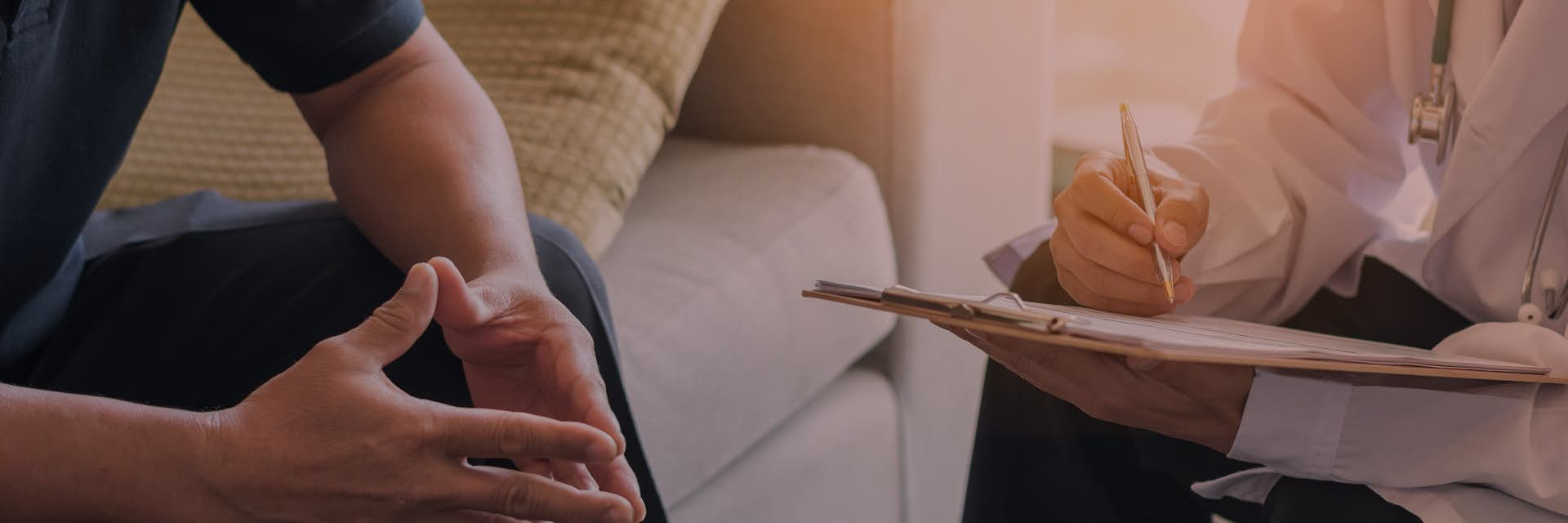
Study economics abroad
Find programs that match your eligibility and aspirations then apply with reduced application fees, a free assessment and access to a dedicated advisor.
Find your perfect economics programs abroad
Find economics programs you love that match your needs & aspirations, where you stand a high chance of acceptance.
Economics degrees abroad
Economics is the study of how we use our resources. It looks at why economic decisions are made, and how they impact society. The study of money and how it works is a valuable skill, and choosing to study economics abroad will arm you valuable skills that employers want.
Studying economics overseas also means you’ll experience a new culture and way of life, and also gain an insight into how economics works in a different country.

Why use Studee?
-
Find your ideal program
Filter 10,000s of programs down to a shortlist perfect for you, where you have a strong chance of getting admitted
-
Apply online via Studee
Complete our application form and enjoy reduced application fees and access to unique Studee scholarships for many universities
-
We assess within 48hrs
We complete an 85-point assessment within 2 business days, help you with improvements then submit to your university
-
University offer in 2-4 weeks
We chase the university for your admission decision and keep you updated. We all celebrate your admission!
All our services are 100% free as we're funded by universities. You pay deposits and tuition fees directly to the university.

Economics program structure
Exactly what you can expect to study on an economics program will depend on the university and country you’re studying in. It will also be different depending on the level you’re studying at, so it’s important to look closely at the curriculum and content of the course before you apply.
Most programs will include several elective or optional modules you can choose from. This means you can tailor your program to focus on the areas you’re most interested in. For example, you could choose to study modules that focus on the impact of economics on society, or you could choose to focus on areas of mathematics and statistics.
Most economics degrees are taught through a combination of lectures, seminars and tutorials, and you’ll be assessed through essays, coursework and written exams. In the final year of most undergraduate degrees you will complete a dissertation that will make up a large part of your final assessment.
At undergraduate level, here some of the modules you can expect to study during an economics:
- Microeconomics
- Macroeconomics
- Applied economics and statistics
- Global economics
- Mathematics for economics
- Econometrics
- Economic policy
Types of economics degrees
There are a number of degrees you can study that are connected to economics, either concentrating on a specific area, or as a related branch of the subject. Some of the different types of economics degrees include:
- Finance
- Applied economics
- Business economics
- Social economic policy
- Commerce
- Agricultural economics
It’s also possible to study economics as a joint degree, for example you can study economics with politics, history or psychology. Choosing to study an economics subdiscipline or joint degree is a good way of focussing your degree in the area you’re most interested in.
Why study economics abroad
Economics impacts every aspect of our lives, from our own individual financial decisions, to the policies of governments and business. Studying economics abroad is a great way of broadening your experience by seeing first hand how another country and society deals with financial issues.
With the increase of international trade and globalization, studying abroad can give you valuable insight that will enhance your understanding of the subject. Not only that, but studying economics abroad is a great way to experience a new culture, improve your language skills and make lifelong friendships.


Where to study economics abroad
Once you’ve decided to study economics abroad, you’ll have a huge number of universities and programs from all over the world to choose from. To help you narrow down your search, think about:
- What program you want to study. Look at the content of the program, and think about the length of the course and if you want a program that includes work placements or internships.
- Where you want to work after graduation. Look at locations that offer opportunities that match your career aspirations, but remember you’ll need a work visa to work in the country once your studies have finished.
- What university experience you want. Your time outside the classroom is really important, so take things like the student life of the university into account. Also think about things like the climate, culture and politics of the country you want to live in.
Deciding where to study is a big life changing decision, so take your time to make sure you make the right choice. Find out more about choosing where to study abroad here.
Best countries to study economics
When it comes to countries with the most highly ranked and respected economics programs, the USA leads the way. The UK also boasts some of the top economics schools and universities, with Australia and Singapore also well represented.
Ultimately, the best country to study economics needs to be a place you want to live in, as well as offering an economics program that meets your needs.
Best universities to study economics
Economics programs are offered in many universities across the globe, and there are also plenty of specialist schools of economics you can apply to. When trying to work out the best university to study economics, think about:
- The content of the program curriculum and the course structure
- If there are any internship or year abroad options
- How well is their economics program ranked or regarded
- What social activities and sports the university offers
- The location of the university - is it in a vibrant city or a leafy campus?
Consider these factors and do your research before you apply. Always try and apply to more than one university to improve your chances, but only apply to places you’d be happy living and studying in.
Economics study abroad programs
You can study economics abroad at all levels including associate, foundation, undergraduate, postgraduate and doctorate.
At undergraduate level, you can study economics as a BSc or BA over three or four years at undergraduate level. BA options often focus more on the social impacts of economics, and BSc programs involve more maths and statistics, however the differences are normally quite small.
If you’re a graduate, you can study a master’s in economics after completing a bachelor’s degree. It’s usually expected that you have a bachelor’s in economics in order to study a master’s, however you can often be accepted if your degree is in a related subject.
To study a PhD, which can last for four or five years depending on the program and country, you’ll need to have completed a master’s in economics.
Economics undergraduate programs
Bachelor's in economics
-

Economics/Agricultural Economics & Agribusiness - BComm University of the South Pacific, Fiji
- Program type
- Bachelor's
- Duration
- 3 years
- Annual tuition fee
-
18,000 FJD
Fees are displayed in the university's local currency
- Start date
- July, February
-

Accounting and Economics - BA (Hons) Cardiff Metropolitan University, UK
- Program type
- Bachelor's
- Duration
- 3 years
- Annual tuition fee
-
15,000 GBP
Fees are displayed in the university's local currency
- Start date
- September
-
Agricultural Business & Economics - BSc Auburn University, USA
- Program type
- Bachelor's
- Duration
- 4 years
- Annual tuition fee
-
33,202 USD
Fees are displayed in the university's local currency
- Start date
- January, May, August
-

Politics and Economics - BA (Hons) (with foundation) Bournemouth University, UK
- Program type
- Bachelor's
- Duration
- 4 years
- Annual tuition fee
-
16,250 GBP
Fees are displayed in the university's local currency
- Start date
- September
-
Economics - BA Long Island University Post, USA
- Program type
- Bachelor's
- Duration
- 4 years
- Annual tuition fee
-
40,248 USD
Fees are displayed in the university's local currency
- Start date
- September, January
Associate in economics
-
Economics - AA Kwantlen Polytechnic University, Canada
- Program type
- Associate
- Duration
- 2 years
- Annual tuition fee
-
22,415 CAD
Fees are displayed in the university's local currency
- Start date
- September, January, May
-

Business: Economics - ASc CIS - The College For International Studies, Spain
- Program type
- Associate
- Duration
- 2 years
- Annual tuition fee
-
20,440 EUR
Fees are displayed in the university's local currency
- Start date
- September, January, May
-

Economics - AA Columbia College, Canada
- Program type
- Associate
- Duration
- 2 years
- Annual tuition fee
-
17,550 CAD
Fees are displayed in the university's local currency
- Start date
- September, January, May
-

Economics - ADT Riverside City College, USA
- Program type
- Associate
- Duration
- 2 years
- Annual tuition fee
-
10,440 USD
Fees are displayed in the university's local currency
- Start date
- June, August, February
-
Economics - AA Merritt College, USA
- Program type
- Associate
- Duration
- 2 years
- Annual tuition fee
-
10,740 USD
Fees are displayed in the university's local currency
- Start date
- August, January
Diploma in economics
-

Data Analytics and Economics - PBcDip Okanagan College, Canada
- Program type
- Undergraduate diploma
- Duration
- 2 years
- Annual tuition fee
-
16,000 CAD
Fees are displayed in the university's local currency
- Start date
- September, January
Pathway in economics
-
Business, Economics & Finance - FD University College Dublin, Ireland
- Program type
- Undergraduate pathway
- Duration
- 1 year
- Annual tuition fee
-
20,000 EUR
Fees are displayed in the university's local currency
- Start date
- September, January
-
Business, Economics, Accounting and Real Estate (Foundation leading to Finance and Real Estate MA) - UGP University of Aberdeen, UK
- Program type
- Undergraduate pathway
- Duration
- 1 year
- Annual tuition fee
-
16,550 GBP
Fees are displayed in the university's local currency
- Start date
- September, November, January
-
Business, Economics, Accounting and Finance - UGP Durham University, UK
- Program type
- Undergraduate pathway
- Duration
- 1 year
- Annual tuition fee
-
24,000 GBP
Fees are displayed in the university's local currency
- Start date
- September, November, January
-

Business, Economics, Accounting and Finance (Accelerated International Foundation Year leading to Business Management: Marketing BSc - Hons) - UGP Cardiff University, UK
- Program type
- Undergraduate pathway
- Duration
- 6 months
- Annual tuition fee
-
17,500 GBP
Fees are displayed in the university's local currency
- Start date
- March
-

Management and Economics (International Foundation Year) - UGP Royal Holloway, University of London, UK
- Program type
- Undergraduate pathway
- Duration
- 1 year
- Annual tuition fee
-
18,100 GBP
Fees are displayed in the university's local currency
- Start date
- September, November, January
Economics graduate programs
Master's in economics
-

Arts (Thesis): Economics - MA (Thesis) University of Canterbury, New Zealand
- Program type
- Master's
- Duration
- 1 year
- Annual tuition fee
-
32,000 NZD
Fees are displayed in the university's local currency
- Start date
- June, July, August, September, October, November, January, February, March, April, May
-

Business Administration and Economics - Dual MBA/MEcon University of Nebraska Omaha, USA
- Program type
- Master's
- Duration
- 2 years
- Annual tuition fee
-
17,281 USD
Fees are displayed in the university's local currency
- Start date
- August, January, May
-

Economics - MA Massey University, New Zealand
- Program type
- Master's
- Duration
- 18 months
- Annual tuition fee
-
31,010 NZD
Fees are displayed in the university's local currency
- Start date
- July, November, February
-
Construction Management and Economics - MSc (Research) University of Greenwich, UK
- Program type
- Master's
- Duration
- 1 year
- Annual tuition fee
-
16,300 GBP
Fees are displayed in the university's local currency
- Start date
- January, September
-

Economics - MA Carleton University, Canada
- Program type
- Master's
- Duration
- 2 years
- Annual tuition fee
-
22,945 CAD
Fees are displayed in the university's local currency
- Start date
- September
Doctorate in economics
-
Construction Management and Economics - PhD London South Bank University, UK
- Program type
- Doctorate
- Duration
- 3 years
- Annual tuition fee
-
16,900 GBP
Fees are displayed in the university's local currency
- Start date
- September, January, April
-

Economics - PhD University of Canterbury, New Zealand
- Program type
- Doctorate
- Duration
- 1 year
- Annual tuition fee
-
7,099 NZD
Fees are displayed in the university's local currency
- Start date
- June, July, August, September, October, November, January, February, March, April, May
-

Economics - PhD Middle Tennessee State University, USA
- Program type
- Doctorate
- Duration
- 3 years
- Annual tuition fee
-
26,172 USD
Fees are displayed in the university's local currency
- Start date
- August, January
-

Economics - PhD University of Manitoba, Canada
- Program type
- Doctorate
- Duration
- 4 years
- Annual tuition fee
-
8,859 CAD
Fees are displayed in the university's local currency
- Start date
- September
-
Economics and Finance - PhD University of Portsmouth, UK
- Program type
- Doctorate
- Duration
- 6 years
- Annual tuition fee
-
7,750 GBP
Fees are displayed in the university's local currency
- Start date
- October, February
Diploma in economics
-

Science: Economics - PGDipSc University of Canterbury, New Zealand
- Program type
- Postgraduate diploma
- Duration
- 1 year
- Annual tuition fee
-
39,500 NZD
Fees are displayed in the university's local currency
- Start date
- July, February
Pathway in economics
-
Business, Economics and Finance - PGP Kaplan International College London: Cranfield University, UK
- Program type
- Postgraduate pathway
- Duration
- 1 year
- Annual tuition fee
-
23,310 GBP
Fees are displayed in the university's local currency
- Start date
- July, September, January, March
-
Business, Economics and Finance - PGP Kaplan International College London: City, University of London, UK
- Program type
- Postgraduate pathway
- Duration
- 1 year
- Annual tuition fee
-
23,310 GBP
Fees are displayed in the university's local currency
- Start date
- September, January, March, August
-
Business, Economics and Finance (Pre-Masters) - PGP Glasgow International College (at the University of Glasgow), UK
- Program type
- Postgraduate pathway
- Duration
- 1 year
- Annual tuition fee
-
26,780 GBP
Fees are displayed in the university's local currency
- Start date
- September
-
Business, Economics and Finance - PGP University of Liverpool International College, UK
- Program type
- Postgraduate pathway
- Duration
- 1 year
- Annual tuition fee
-
24,000 GBP
Fees are displayed in the university's local currency
- Start date
- September, October, January, April
-
Business, Economics and Finance - PGP Kaplan International College London: University of Westminster, UK
- Program type
- Postgraduate pathway
- Duration
- 1 year
- Annual tuition fee
-
24,390 GBP
Fees are displayed in the university's local currency
- Start date
- September, January, May

Entry requirements to study economics abroad
To study economics in another country you’ll need to meet the university’s entry requirements. The requirements will be unique to each university and program, but here are the basics you’ll need:
- To have completed secondary education in your home country with satisfactory grades - some programs ask for good maths and economics grades, but many don’t specify the subjects
- A personal statement that outlines your interest in the economics
- Good English language proficiency test scores
- Academic references or a letter of recommendation
- A bachelor’s degree in economics or a similar subject to study a master’s
For more help and advice on the application process, read our guide on how to study abroad.
Future economics careers
Getting a degree in economics opens up a huge number of potential career opportunities, especially when you’ve studied abroad. Popular careers for economics graduates include:
- Economist
- Market research analyst
- Financial analyst
- Risk analyst
- Accountant
- Data analyst
- Account manager
- Management consultant
Check each program to make sure the content and curriculum match your career aspirations. Choose a program that will help you get the job you want after graduation.






























